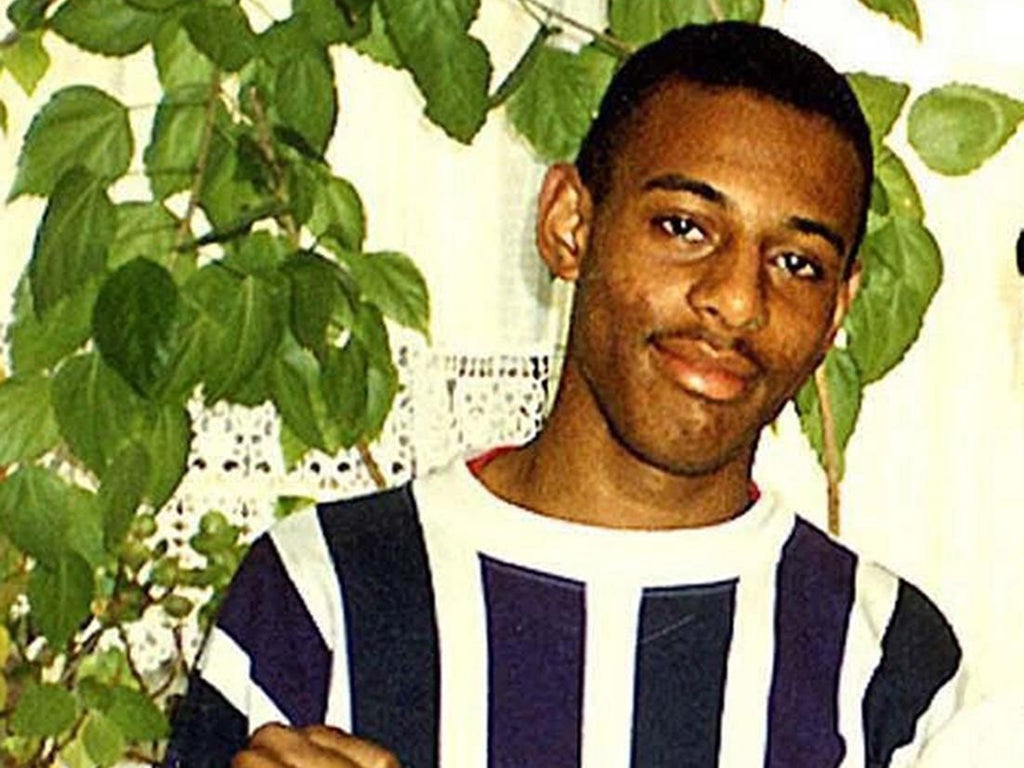20 years after the murder of Stephen Lawrence, it’s taboo to talk racism
If he were alive today, would be living in both a better and a worse world

Stephen Lawrence was murdered 20 years ago.
His parents Doreen and Neville have since been fighting for justice which came only in 2012, when two men, Gary Dobson and David Norris were convicted of the murder. Last month, Dobson dropped his appeal, But Norris, the son of a known gangster, is still planning his. I’ve known Doreen since 1995 and have seen her change from a bereft, tortured woman into an indomitable campaigner, turning a mother’s undying love into iron resilience. I must pay homage here to another such mother who died last week, Anne Williams, whose son, Kevin was killed in the Hillsborough disaster aged only 15. Liverpudlian Williams also fought for truth and justice and mercifully lived to see both. For Doreen there is no closure because others involved in snuffing out her boy’s life are still at large and also because her struggle was and is for racial equality. It was never only about Stephen. Likewise, the 1999 Macpherson inquiry panel which concluded that the killing and police failures were totemic, reflecting the state of race relations in Britain.
Now as they pray for Stephen in a service at St Martin-in-the Fields, we owe it to him to take stock of race in his country today. Are things better or worse than they were then? The question is not answered easily. The Olympics, Danny Boyle inviting Doreen Lawrence to carry the Olympic flag, the easy mingling of the races in our cities, the increase in the number of black and Asian parliamentarians, our multiracial popular culture, the excision of the worst racist terms from public discourse, some non-white individuals reaching the top and the irreversible hybridity of this nation show how far we have come. Britain is seen by most of the world as more open and enlightened than other European countries. But the progress achieved by anti-racists and equality champions is provoking anger, resistance and new, particular, 21st-century forms of nativist xenophobia.
Stephen, if he were alive today, would be living in both a better and worse world. He might have become the architect he wanted to be, but on the streets the police would still regard him as “trouble”. He might have faced other dangers, some he had never imagined back then.
Arguably the early 1990s were more innocent times. There was no Islamicist terrorism, or conspicuously political Muslim revivalism; young black males were not killing each other in dystopian localities; there were no cases of Asian gangs raping young white girls – all of which validate and encourage racist views, perhaps understandably. Furthermore, unlike our hopelessly divided times, white, Asian and black Britons united against human rights violations; intellectuals like Stuart Hall and activists like Darcus Howe challenged reactionary ideas and false histories, credible research was commissioned on unfair discrimination and we were allowed to talk about racism.
These days, the last feels like a banned activity. Brainwashed by the politically correct right, white Britons now refuse to contemplate the way race remains a powerful, negative force. The web is alive with prejudices freely expressed. The Metropolitan Black Police Association have just declared institutional racism is alive and kicking in the force. Michael Gove is pushing an imperialist curriculum, and all three parties are engaged in a dirty war against immigrants. Some public intellectuals impugn incomers for all the nation’s woes and romanticise an imagined, homogeneous past. Prominent atheists proudly vent outrageous hatred of Islam and are extolled. Racism has acquired a patriotic sheen for some and for others is gone, even from memory. At a party to celebrate Any Questions at the BBC last year, I found myself chatting to some grand men, among them Chris Patten. They fondly remembered Enoch Powell. Did they expect me to smile and join in? The Thatcher fest too edited out black experiences. Poet Linton Kwesi Johnson remembers her as a “xenophobe who fanned the flames of racial hatred”. He wasn’t invited to the funeral, of course.
A new survey of social attitudes by the think tank British Futures apparently claims that there is a big reduction in the number of people who say they believe black and Asian people face discrimination. What kind of question is that to ask? Especially when the country is impatient with racial complaints? Vague opinions cannot be reliable indicators of rising or falling discrimination. Last year a OnePoll survey found one on three Britons admitted to being racist. The largest group were over-55s but those in their twenties and thirties were not far behind. Another 2012 study confirmed 87,915 cases of racist incidents in schools. And a nationwide survey found increased racism in Cumbria, Hampshire and other largely white areas, and racism declining in London.
Doreen Lawrence blames official anti-immigration rhetoric for growing racial and ethnic intolerance and opposes the Government’s assault on race equality policies. No one else has her courage and tenacity on these matters. As she remembers her son, I hope she also remembers how precious she is to millions of us who will not give up fighting for equality because she doesn’t.
Join our commenting forum
Join thought-provoking conversations, follow other Independent readers and see their replies
Comments
Bookmark popover
Removed from bookmarks